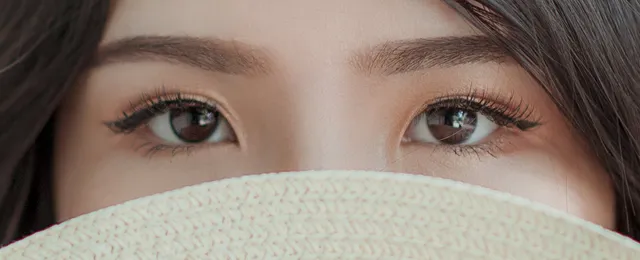
Eyes and sight are truly from God. Try closing your eyes for half an hour or at least 10 minutes and you will realize the importance of eyes and vision. Just like any other part of your body, your eyes require a conscious effort to protect them, which also helps improve your vision.
Take a 20-second computer break
Staring at a computer (or any digital screen) won’t hurt your eyes, but it can make them feel tired and dry. Surprisingly, we blink about half as often when looking at a screen. Follow the 20/20/20 rule: Look at least 20 feet away for at least 20 seconds every 20 minutes. Also, position the screen so that it is about 25 inches away and slightly below eye level. Reduce glare by moving light sources or using a mesh filter.
Always wear sunglasses
UV rays can damage your eyes as well as your skin. The effects add up and can cause problems like cataracts, corneal burns and even eyelid cancer. Whenever you’re outside—even on cloudy days—wear sunglasses or contact lenses that block 99% to 100% of UV-A and UV-B rays. Safety lenses don’t have to be expensive, just check the label. Hats also block exposure. Snow, water, sand and concrete can reflect UV radiation.
Wear safety glasses for work and play
Almost half of all eye injuries happen at home, not in the workplace. Wear safety glasses whenever the project may fly debris or spray hazardous chemicals. Safety glasses can prevent 90% of sports-related eye injuries. The lenses should be made of polycarbonate plastic – which is 10 times more impact resistant than other materials. Some of the sports with the most injuries are baseball/softball, racquet sports, lacrosse, and basketball.
Eat for your heart and eyes
Foods that help circulation are good for your heart, eyes and vision. Choose heart-healthy foods like citrus fruits, dark leafy greens, and whole grains. Foods rich in zinc – beans, peas, peanuts, oysters, lean red meat and poultry – can help the eyes resist light damage. And carrots are good for your eyes: Vitamin A in them is important for good vision. Other nutrients that help the eyes include beta-carotene (found in many yellow or orange fruits and vegetables) and lutein and zeaxanthin (found in leafy greens and colorful crops).
Do not ignore eye problems
If your eyes are itchy or red, soothe them with cold compresses, antihistamines, or eye drops. If you feel sand, like having sand in your eye, flush with saline. See a doctor if symptoms persist or if you have eye pain, discharge, swelling, or sensitivity to light. Other reasons to see a doctor: dark floating spots, flashes of light, or any time you can’t see normally.
Clean your contact lenses
Take care of your eyes by taking care of your contacts. Always wash and dry your hands before handling lenses. Use only cleansers and drops approved by your eye doctor. Clean, rinse, and dry the case with saline solution—not tap water—after each lens removal, and replace them every two to three months. Do not wear lenses when swimming or using cleaning products such as bleach. Do not leave your lenses on for daytime wear while you sleep or for naps. And don’t wear lenses longer than recommended.
Know your health history
Many seemingly unrelated medical conditions can affect your eyes. High blood pressure and diabetes can reduce blood flow to the eyes. Immune system disorders in the lungs, thyroid, or elsewhere can also inflame the eyes. Other threats include multiple sclerosis, aneurysms and cancer. Tell your eye doctor about any current or past health problems, including family members with eye problems or serious illnesses.
Read medication labels
Many types of drugs or combinations of drugs can affect your vision. Be aware of possible side effects of different medications used to treat different conditions. Tell your doctor if you experience problems such as dry or watery eyes, double vision, sensitivity to light, puffy or droopy eyelids, and blurred vision.
Throw away the old eye makeup
Bacteria grow easily in liquid or cream eye makeup. Throw away the products after 3 months. If you develop an infection, immediately remove all eye makeup and see a doctor. If you are prone to allergic reactions, try only one new product at a time. Never share cosmetics or use store samples. Clean your face thoroughly before and after applying make-up and do not apply cosmetics to the lash lines.
Get regular eye exams
You should have your eyes checked regularly, even if you don’t wear glasses. Ask your doctor how often. This will be at least every other year between the ages of 18-60, or every year if you are older, wear contact lenses or have risk factors such as diabetes, high blood pressure or a family history of eye disease.
